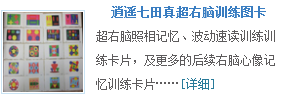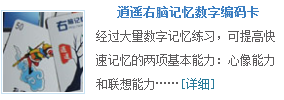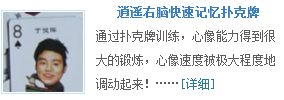I. 重点短语
1. give a concert
2. fall down
3. go on
4. at the end of
5. go back
6. in ahurry
7. write down
8. come out
9. all the year round
10. later on
11. at times
12. ring sb. up
13. Happy New Year!
14. have a party
15. hold on
16. hear from
17. be ready
18. at the moment
19. take out
20.the same as
21. turn over
22. get-together
23. put on
24. take a seat
25. wait for
26. get lost
27. just then
28. first of all
29. go wrong
30. make a noise
31. get on
32. get off
33. stand in line
34. at the head of
35. laugh at
36. throw about
37. in fact
38. at midnight
39. enjoy oneself
40. have a headache
41. have a cough
42. fall asleep
43. again and again
44. look over
45. take exercise
II. 重要句型
1. be good for sth.
2. I think …
3. I hope…
4. I love…
5. I don’t like…
6. I’m sure…
7. forget to do sth.
8. take a message for sb.
9. give sb. the message
10. help yourself to sth.
11. be famous for sth.
12. on one’s way to…
13. make one’s way to…
14. quarrel with sb.
15. agree with sb.
16. stop sb. from doing sth.
III. 交际用语
1.What’s the weather like today?
2.It’s cold, but quite suuny.
3.How cold it is today!
4.Yes, but it’ll be warmer later on.
5.Shall we make a snowman?
6.Ok. Come on!
7.Happy New Year!
8.May I speak to Ann, please??
9.Hold on, please.
10.Thanks a lot for inviting me to your party.
11.Ok. But I’m afraid I may be a little late.
12.Can I take a message for you?
13.That’s OK. It doesn’t matter.
14.I’m very sorry, but I can’t come.
15.I’m sorry to hear that.
16.Happy birthday!
17.Would you like ...? Would you like to ...?
18.Do you think ...? Yes, I think so. / No, I don't think so.
19.Do you agree? Yes, I agree. / No, don't really agree. I really can't agree.
20.There are a few / a lot of ... / on it.
21.So do we.
22.I'm happy you like it.
23.Which is the way to ..., please?
24.Turn right/left at the ... crossing.
25.Go on until you reach ...
26.How can I get to ...? Go down/up/along this road.
27.What's the matter?
28.It'll take you half an hour to ...
29.We'd better catch a bus.
30.It may be in ... Ah, so it is
31.You must be more careful!
32.You mustn't cross the road now.
33.If you want to cross a street, you must wait for the green light.
34.Please stand in line.
35.You must wait for your turn.
36.If you don't go soon, you'll be late.
37.I don't feel very well.
38.My head hurts.
39.You mustn't eat anything until you see the doctor.
40.What's the trouble?
41.What's the matter with…?
42.She didn't feel like eating anything.
43.Nothing serious.
44.Have/get a pain in…
45.No problem.
46.Take this medicine three times a day.
IV. 重要语法
1. 一般过去时;
2. 反意疑问句的用法;
3. 一般将来时;
4. 感叹句;
5. 简单句的五种基本句型;
6. 情态动词can, may和must, have to的用法;
7. 时间状语从句和条件状语从句。
【名师讲解】
1. above/ over/ on
这三个介词都表示“在……之上”,但含义不同。on指在某物的表面上,和某物接触;above指在某物的上方,不和某物接触,但也不一定在某物的正上方;over指在某物的正上方,不和某物接触。试比较:
There is a book on the desk.课桌上有一本书。
I raise my right hand above my head. 我把右手高举过头。
There is a stone bridge over the river. 河面上有座石桥。
2. forget to do sth./forget doing sth.
forget to do sth.意思是“忘记做某事”,实际上还没做;forget doing sth,意思是“忘记做过某事”,实际上已经做过了。试比较:
I forgot to tell him the news.我忘记告诉他这条消息了。
I forgot telling him the news.我已经把这条消息告诉他了,我却忘了。
类似的词还有:remember, regret等。
4. be sure to do sth./ be sure of/about sb. or sth.
(1)be sure to do sth.可以用来表示说话人给对方提出要求,意思是“务必”,也可以用来表示说话人做出的推断,意思是“一定”,“肯定”。例如:
Be sure to lock the door when you leave.你离开时务必把门锁好。
It’s a good film. You are sure to enjoy it.这是一部好电影,你肯定会喜欢的。
(2)be sure of/about sb.or sth. 可用来表示“某人对某事有把握”。例如:
I’m sure of his success.我相信他会成功。
I think it was three years ago, but I’m not sure about it.我想那是三年前的事情,但我没有把握。
5. hear from/hear of
hear意思是“听到”,从哪里听到要用from来表示。例如:
I’ve heard from Xiao Wu that we’ll start out military training tomorrow.
我听小吴说,我们明天开始军训。
Listen to the tape and write out what you hear from Han Mei.
听录音,并写出你从韩梅那里听到的内容。
hear from还有一个意思是“收到某人的来信”(=receive a letter from sb.)。例如:
I heard from my pen friend in the U.S.A. last month.
上个月我受到了美国笔友的来信。
I heard from her last week. 我上周接到了她的来信。
hear of和和hear from含义不同。hear of 意思是“听说”,“得知”(某事或某人的存在),常用在疑问句和否定句里。例如:
Who is he? I’ve never heard of him.他是谁?我从来没有听说过他。
I never heard of such a thing! 这样的事我从来没有听说过。
6. It’s a pleasure./With pleasure.
It’s a pleasure这句话常用作别人向你表示致谢时的答语,意思是“那是我乐意做的”。例如:
---Thank you for helping me. 谢谢你地帮助。
---It’s a pleasure. 那是我乐意做的。
---Thanks a lot. Bye.非常感谢。 再见。
---It’s a pleasure. 那是我乐意做的。再见。
类似的话还有 “Not at all.” “You are welcome.” “That’s all right.”
With pleasure也用作客气的答语,主要用在别人要你做某事,而你又非常愿意去做的场合。例如:
---Will you please pass me the newspaper, please?
请你把报纸递给我好吗?
---With pleasure.
当然可以。
7. seem/look
(1)二者都可以作“看起来”讲,但seem暗示凭借一些迹象作出的有根据的判断,这种判断往往接近事实;look着重强调由视觉得出的印象。两者都可跟(to be)+形容词和as if从句。如:
He seems / looks (to be) very happy today. 他今天看起来很高兴。
It looks (seems) as if it it is going to rain. 好像要下雨了。
(2)但下列情况中只用seem不用look:
1)后跟不定式to do时。如:
He seems to know the answer. 他似乎知道答案。
2)在It seems that ...结构中。如:
It seems that he is happier now than yesterday.他像比昨天高兴些了。
8. be ready to do/be ready for/ get ready to do/get ready for
(1)be ready to do和be ready for…表示“已作好…的准备”,强调状态
(2)get ready to do和get ready for…表示“为…做准备”,强调行为。如:
I'm ready to do anything you want me to do. 我愿意/随时准备做一切做你要我做的事。
I'm ready for any questions you may ask.我愿意/随时准备回答你可能问的问题。
He's getting ready to leave for Tokyo.他正准备动身去东京。
Let's get ready for the hard moment.我们为这一艰难时刻作好准备吧。
(3)be ready to do 通常可理解“乐于做某事”,即思想上总是有做某事的准备。be not ready to do表示
“不轻易做某事”。如:
He's usually not ready to listen to others.他通常不轻易听从别人。
9. at table/at the table
at table在吃饭,at the table在桌子旁边。例如:
The Greens are at table. 格林一家人在吃饭。
Mr. Black is sitting at the table and reading a book.布莱克先生坐在桌旁读书。
10. reach, arrive/get to
三者都有"到达"之意。reach是及物动词,后直接加名词,get和arrive是不及物动词,不能直接加名词,须借助于介词。get to后加名词地点,若跟副词地点时,to去掉;arrive at +小地方,arrive in+大地方。如:
Lucy got to the zoo before 8 o'clock. 露西8点前到了动物园。
When did your parents arrive in Shanghai? 你父母何时到上海的?
It was late when I got home. 我到家时天色已晚。
11. sick/ill
二者都是形容词。当“生病的,患病“之意时,ill只作表语,不作定语;而sick既可作表语也可作定语。sick有"呕吐,恶心"的意思,只能作表语,而ill无此意。如:
Li Lei was ill last week. (只作表语)李磊上周生病了。
He's a sick man. (作定语)他是病人。不能说成:He's an ill man.
My grandfather was sick for a month last year. (作表语)我祖父去年病了一个
月。
12. in time/on time
in time是"及时"的意思,on time是"准时,按时"。如:
I didn't get to the bus stop in time. 我没有及时赶上汽车。
We'll finish our job on time. 我们要按时完成任务。
13. may be/maybe
It may be in your inside pocket. = Maybe it is in your inside pocket. 也许在你里边的口袋里。第一句中may be是情态动词+be 动词构成的谓语部分,意思是"也许是","可能是";第二句中的maybe是副词,意思是"可能",常位于句首,不能位于句中,相当于另一副词 perhaps。再如:
Maybe you put it in that bag.也许你放在了那只包里。(不能说You maybe put it
in that bag.)
It may be a hat.那可能是顶帽子。(不能说It maybe a hat. 或It maybe is a hat.)
14. noise/ voice/ sound
noise 指嘈杂声,噪音大的吵杂声。voice是指说话的声音,嗓音,嗓子。sound是指耳朵能够听到的声音、闹声等。它是表示声音之意的最普通的字。有时还用作科学上的声音。例如:
Don't make so much noise! 别那么大声喧哗!
I didn't recognize John's voice on the telephone. 在电话里我听不出约翰的声
音。
He spoke in a low voice. 他低声说话。
We heard a strange sound. 我们听到了一种奇怪的声音。
Sound travels fast, but light travels faster. 声音传得快,但是光传得更快。
【考点扫描】
中考考点在本单元主要集中在:
1. 一般过去时;
2. 反意疑问句的用法;
3. 一般将来时;
4. 感叹句;
5. 简单句的五种基本句型;
6. 情态动词can, may和must, have to的用法;
7. 时间状语从句和条件状语从句;
8. 本单元学过的词汇、短语和句型;
9. 本单元学过的日常交际用语。
考试形式可以是单项填空、完型天空、短文填空和完成句子。
【中考范例】
1. (2004年长沙市中考试题)
---Do you know if we will go to the cinema tomorrow?
---I think we’ll go if we ________ too much homework.
A. will have B. had C. won’t have D. don’t have
【解析】答案:D。该题考查的是条件状语从句的时态。在条件和时间状语从句里通常用一般现在是表示将来的动作。
2. (2004年佛山市中考试题)
You have been to Tibet, _________? I was told that the snow-covered mountains were very beautiful.
A. have you B. haven’t you C. don’t you
【解析】答案:B。该题考查的是反意疑问句的构成。反意疑问句的前一部分是肯定句,后一部分就应该是否定的疑问部分,而且要和前一部分保持时态上的一致。
3. (2004年扬州市中考试题)
---Jacky, look at that Japanese sumoist(相扑手).
---Wow, ______________!
A. How a fat man B. What a fat man
C. How fat man D. What fat man
【解析】答案:B。该题考查的是感叹句的构成。这个感叹句省略了主谓部分,只保留了感叹部分。如果以What开头,就应该是What a fat man! 如果是How开头,就应该是How fat!
4. (2004年福建省泉州市中考试题)
---Thanks for your help.
---__________________
A. It doesn’t matter B. Don’t thank me
C. You’re welcome D. That’s right
【解析】答案:C。该题考查的是日常交际用语。回答别人的道谢通常用“That’s all right.”或”You’re welcome.”
【满分演练】
一. 选择填空
1. Don’t forget _________your book here tomorrow.
A. to take B. to bring C. taking D. bringing
2. Mrs Brown went to the cinema, ______she?
A. didn’t B. doesn’t C. wasn’t D. isn’t
3. It was half past four. Everything _______ready.
A. is B. was C. are D. were
4. ---Happy New Year!
---____________.
A. The same to you B. I’m glad to hear that
C. I’m very happy D. Thank you. It’s very kind of you.
5. I got up late yesterday. There _________no time to have breakfast.
A. has B. had C. was D. is
6. Thank you for ______me to your party.
A. invite B. inviting C. to invite D. invited
7. ---I’m sorry I took your pen by mistake yesterday.
---______________.
A. All right B. That’s right C. Right D. That’s all right
8. ---Thank you for showing me the way!
---________________.
A. The same to you B. It doesn’t matter
C. It’s a pleasure D. That’s right
9. ---Could I use your computer for a moment?
---_____________.
A. Sure B. Really C. Right D. It doesn’t matter
10. ---I just lost my bike.
---________________.
A. I wish you to buy a new one
B. You’d better buy a new one
C. I’m sorry to hear that
D. It’s always nice to ride a new one
二. 选择能代替句中划线部分的词语或短语
1.What’s the matter with your mother?
A.problem B. question C. message D. wrong
2.---Thank you very much.
---It’s a pleasure.
A. I’m very glad. B. That’s right.
C. It doesn’t matter D. Not at all
3.What is he doing at the moment?
A.now B. a moment ago C. late D later on
4.Did you have a good time at the party?
A.stay long B. sing and dance C. enjoy yourself D. eat enough
5.---May I speak to John, please?
---Certainly.
A.Sure. B. I think so. C. I’d love to D. That’s all right.
6.---Could I speak to Jim, please?
---Sorry,he isn’t in.
A.is at home B. is not at work C. is out D. is free
7.There is nothing but an old table in the room.
A. many B. some
C. any D. only
8.What’s the weather like?
A. When B. Where C. why D. How
9.Please let me look at your photo.
A.give me B. pass me C. bring me D. show me
10.Please ask him to ring me up when he comes back.
A. see B. help C. call D. thank
三. 完形填空
When I __1__ in London last year, it had one of the thickest fogs(雾) in years. You could __2____ see your hand in __3___ of your face. When evening fell, it became even __4___ . All traffic __5___ to a stop. I decided to walk.
A few minutes __6___ , I couldn’t find my__7___ . Then I saw a young man and asked him to help me. He agreed. As I was following him __8__ the streets, he told me, “I know this part of London quite well. And the thick fog ___9__ to me. You see, I’m __10___ .”
1.A. is B. was C. am D. are
2. A. easily B. hard C. hardly D. even
3. A. front B. the front C. back D. the back
4. A. bad B. worse C. good D. better
5.A. began B. started C. went D came
6.A. late B. later C. early D. earlier
7.A. road B. way C. street D. home
8.A. along B. in C. through D. by
9.A. is not good B. does good
C. is nothing D. has something
10.A. strong B. week C. blind D. clever
四. 阅读理解
(A)
John was a very famous pianist. When he was a small boy, he once played at a party at the home of a rich man. He was only eight years old. But he had played for several years. At the party he played a famous piece by Beethoven (贝多芬). He played wonderfully.
The famous piece has in it several very long rests. In each of these rests he took his hands from the piano and waited. To him this was very exciting. But it seemed that the mother of the rich man thought differently. Finally during one of these rests she came over to him. She touched him on the head with a smile and said, “My boy, why
don’t you play us what you know well?”
根据短文内容判断正误:正确的答“A”,错误的答“B”。
1.John once played the piano at a party when he was only a little boy.
2.John began to play the piano at the age of eight.
3.In each of the rests John took his hands from the piano because he felt tired.
4.The rich man’s mother did not think John played the piece well.
5.I n fact the mother of the rich man knew the piece well.
(B)
One day, we had an English class. The teacher saw a boy reading a picture book and said, “Tom, what do you usually do after lunch?” Tom nervously(紧张地)got up from his seat, but he did not know what to answer. He thought for some time and then said, “Wait for supper.”
The teacher was displeased and just at that moment, he saw another boy asleep. The teacher was getting a little angry now, but he was trying not to show it. Then he asked, “And you, Joke?”
As Joke was asleep, of course, he could not hear what the teacher had said. His deskmate(同桌) woke him up. Joke stood up quickly and answered in a loud voice, “So do I”.
1.This story happened____________.
A. in the teacher’s office B. after lunch
C. in class D. a home
2.Tom’s answer made the teacher __________.
A. angry B. displeased C. surprising D. laughing
3.The teacher asked Joke ________.
A.what he wanted to do after class
B.what he did in class
C.the same question as he asked Tom
D.to help Tom
4.Joke’s answer meant that_______.
A.he knew what to do and what not to do after lunch
B.he did the same thing as Tom did
C.he read a picture-book
D.he did many things after lunch
5.From the above story we can see that ________.
A. Joke did not know what question the teacher had asked
B.Tom did well in his lessons
C.Joke was good at his lessons
D.Tom and Joke worked hard at their lessons
(C)
Mrs Black, the wife of a rich business man, invited some of her friends to have
lunch. She wanted to try a new way of cooking a fish, and she was very pleased with
herself when the dish was ready. As the dish was very hot, she put it near the open
window to cool for a few minutes. But, five minutes later, when she came back for it,
she was shocked(震惊)to find the neighbour’s cat at the dish. She was in time to stop
the car. That afternoon was successful and everyone enjoyed the dish very much.
They talked and laughed till four o’clock.
At the end of the afternoon, when she was alone again, Mrs Black felt tired and
happy. She was in a chair just near the window. She looked out of the window and
shocked to see the neighbour’s cat dead in her garden. Why, the fish dish must be bad!
What would happen to her friends? She at once telephoned the family doctor for
advice. The doctor told her to telephone each of the visitors to meet him at the
hospital as soon as he could. Finally the danger was over. Once again Mrs Black was
alone in her chair in the sitting-room, still tired but no longer happy. Just then the
telephone rang. It was her neighbour. “Oh, Mrs Black,” her neighbour cried, “My cat
is dead. She was killed by someone in a car and put it in your garden.”
1.Mrs Black invited _______to lunch.
A. Mr Black’s friends B. her neighbour
C. her parents D. some of her friends
2.Why was Mrs Black not happy after she had a good party?
A.She was sad about the dead cat.
B.She found her fish dish was bad.
C.She never thought that she would have so much trouble.
D.She felt tired after she had a busy day.
3.Mrs Black________________________.
A.stopped the cat before it began to eat the fish
B.was too late to stop the cat in time
C.stopped the cat before it ate the fish up
D.stopped the cat but it was too late
4.Why was Mrs Black so shocked to see the cat dead in her garden?
A.She liked the cat very much.
B.She worried about her friends.
C.She was sure that her fish was bad.
D.She didn’t know how the cat died.
5.Finally________________.
A.Mrs Black found that all her friends were all right
B.a visitor told her that the cat was killed by someone in a car
C.Mrs Black felt happy as all her friends were safe
D.Mrs Black met all her friends at the hospital
五. 根据汉语句子的意思完成下列英语句子
1. 收音机里说今天晚些时候雨会停的。
The radio says the rain____ ____ ____ ____today.
2. 我不喜欢冬天,因为天气太冷了。
I don’t like winter, _____it’s ____ _____.
3. 西安位于中国的西北部。
Xi’an is ______the ______of China.
4. 多好吃的面包啊!
_____ _____ bread it is!
5. 明天白天温度将保持在零度以上。
The temperature will _____ ____ _____ in the daytime tomorrow.
六. 句型转换,使第二个句子和第一个句子的意思相近或相同
1.What a hot day today!
_____ _____ it is today!
2. Most of North and South China will have a cold wet day .
____ will be cold and wet _____ most of North and South China.
3. The radio says it will be cloudy sometimes.
The radio says it will be cloudy ____ ____.
4. The snow will be heavy in some places.
It _____ _____ _____ in some places.
5. Shall we go out for a walk?
_____ _____ going out for a walk?
【练习答案】
一. 1.C 2.B 3.B 4.A 5.B 6.B 7.D 8.A 9.B 10.B 11.B 12.B 13.A 14.D 15.C 16.A 17.D 18.A 19.B 20.B
二. 1. B 2. B 3. B 4. A 5. D 6. D 7. D 8. B 9. C 10. B
三. (A) 1. B 2.A 3.A 4. A 5. B
(B) 1. A 2. C 3. B 4. B 5. A
本文来自:逍遥右脑记忆 http://www.jiyifa.net/chuer/63810.html
相关阅读:新目标八年级英语上册复习提纲(全套)2
闂傚倸鍊搁崐鐑芥嚄閸撲礁鍨濇い鏍亼閳ь剙鍟村畷銊р偓娑櫭禍杈ㄧ節閻㈤潧孝闁稿﹤顕槐鎾愁潩閼哥數鍘卞銈嗗姂閸婃洟寮搁弮鍫熺厽婵犻潧妫涢崺锝夋煛瀹€瀣埌閾绘牠鏌嶈閸撶喖骞冭缁绘繈宕舵搴b棨闂備礁鎼粙渚€宕㈡禒瀣亗闁靛濡囩粻楣冩煙鐎电ǹ浠ч柟鍐叉噺閵囧嫰鏁愰崨顓犻獓缂備胶绮换鍫ュ春閳ь剚銇勯幒宥囶槮妞ゆ洟浜堕弻鈩冨緞鐎n亞浠稿銈冨劜缁诲牆顫忓ú顏勭闁绘劖褰冩俊褔姊洪崨濠傚闁哄懏绮岄埢鎾寸鐎n偀鎷洪柣鐘叉搐瀵爼骞戦敐澶嬬厵闁惧浚鍋呯亸顓㈡煥閺囨ê鐏查柡灞芥椤撳ジ宕ㄩ閿亾椤掑嫭鐓涘璺猴功婢ф垿鏌涢弬鍧楀弰闁靛棗鎳樺濠氬Ψ閿旀儳骞嶉梻浣虹帛閸ㄦ儼鎽紒鐐礃瀹曠數妲愰幒妤婃晩闁兼亽鍎遍弳妤冪磽娴d粙鍝洪柟鐟版搐閻e嘲顫滈埀顒勫春閳╁啯濯撮弶鐐靛閸嬪懘姊婚崒娆愮グ婵℃ぜ鍔戝钘夘吋婢跺﹦锛欏┑鐘绘涧椤戝洤鐣垫笟鈧幃妤呮晲鎼粹剝鐏嶉梺绋款儛娴滄繈濡甸崟顖氬唨闁靛ě灞炬婵$偑鍊栭弻銊ッ洪鐑嗘綎婵炲樊浜滃婵嗏攽閻樻彃顏柛锝庡弮濮婃椽骞栭悙鎻掝潊闂佺ǹ顑嗛崝鏇㈠煡婢舵劖鍋ㄧ紒瀣硶閸旓箑顪冮妶鍡楃瑨閻庢凹鍙冮幃锟犳偄閸涘﹤寮垮┑鈽嗗灣閸樠呮暜閼哥數绠鹃柛娑卞枤閹冲懐绱掓潏銊ョ瑲婵炵厧绻樻俊姝岊槾闁伙絽銈稿楦裤亹閹烘繃顥栨繝鐢靛亹閸嬫挻绻濈喊澶岀?闁稿繑锕㈠顐﹀磼閻愭潙浠奸柣蹇曞仧鏋ù婊呭亾閵囧嫰寮村Δ鈧禍楣冩⒑鐠団€虫灈闁搞垺鐓¢崺銏℃償閵堝洨鏉搁梺鍦檸閸ㄧ増绂嶉幆褉鏀介柣妯虹枃婢规ḿ鐥幆褜鐓奸柡灞诲妼閳规垿宕卞鍡橈骏婵$偑鍊愰弲婵嬪礂濮椻偓瀵鈽夊Ο閿嬵潔闂佸憡顨堥崑娑綖閳哄懏鈷戦弶鐐村椤斿鏌¢崨顖氣枅妤犵偛鍟伴幑鍕偘閳╁喚娼旈梻浣告惈鐠囩偤宕橀崜褉鍋撴潏鈺冪=闁稿本鑹鹃埀顒€鎽滅划鏃堟濞磋櫕鐩畷姗€顢欓懖鈺冩瀮闂備浇顫夊畷姗€顢氳椤斿繐鈹戦崶銉ょ盎闂佸搫鍟ú銈堫暱闂佽瀛╂穱鍝勨枍閺囩姵宕叉繛鎴炲焹閸嬫挸鈽夊▎瀣窗闂佹椿鍘奸鍛存箒濠电姴艌閸嬫挾绱掗鐣屾噰鐎规洘妞介崺鈧い鎺嶉檷娴滄粓鏌熼崫鍕棞濞存粓绠栧铏圭矙閸栤€冲闂佺娅曢幑鍥极閸愵喖顫呴柕鍫濇噽椤撶厧顪冮妶鍡樷拹闁稿骸鍟块悾鐑藉Ψ閵夈垺鏂€闂佺粯鍔曞鍫曀夊⿰鍕閻庣數枪閸樻挳鏌熼姘冲闁伙絾绻堝畷鐔碱敆閸屾艾绠ョ紓鍌氬€搁崐鐑芥倿閿曞倹鏅┑鐘愁問閸犳牠宕幍顔筋潟闁圭儤姊瑰畷澶愭煣韫囨稈鍋撳☉姘垛攺缂傚倸鍊风粈渚€鎯岄崒娑氼洸闁割偅娲栭弰銉╂煕閺囥劌鐏犵紒鈧崘顏呭枑闊洦娲滈惌鍡涙煃瑜滈崜鐔奉潖閾忚瀚氶柟缁樺俯閸斿绱撴担鍓插剱閻㈩垽绻濆顐も偓锝庡枟閳锋垹绱掔€n偒鍎ラ柛搴$箳缁辨帗寰勬繝鍌ゆ殺闂佸憡甯楃敮鎺楋綖濠靛鏁勯柣鎰摠閵囨繃銇勯姀鈩冾棃鐎规洦浜畷姗€顢旈崟顒€鍔掗梻鍌氬€搁崐椋庣矆娓氣偓楠炴牠顢曢敂钘変罕闂佺硶鍓濋悷褔鎯岄幘缁樺€垫繛鎴烆伆閹达箑鐭楅煫鍥ㄧ⊕閻撶喖鏌¢崒姘变虎闁诡喗鍨块弻锟犲椽娴gǹ鈷嬮梺璇″枟閿曘垽骞冨▎鎴炲磯閺夌偟澧楅惈蹇涙⒒娴h棄鍚归柛鐘冲姉閹广垽宕奸妷銉ㄦ憰闂佺粯姊婚崢褔宕欓悩鐐戒簻闁规壋鏅涢悘鈺佲攽椤旇姤绀€闁宠鍨块幃鈺咁敃椤厼顥氭繝鐢靛仦閹稿宕洪崘顔肩;闁圭偓鎯屽▓浠嬫煟閹邦垰鐨洪弫鍫ユ⒑缁洘鏉归柛瀣尭椤啴濡堕崱妤冪懆闁诲孩鍑归崜娑㈠焵椤掍浇澹樻い锔诲灦閳ワ妇鎹勯妸锕€纾繛鎾村嚬閸ㄤ即宕滄潏鈺冪=闁稿本姘ㄨⅵ闂佺ǹ顑嗛幑鍥ь潖缂佹ɑ濯撮柣鐔煎亰閸ゅ绱撴担鍓插剱闁搞劌澧庣紓鎾寸鐎n亞鐫勯梺绋挎湰缁酣鎮鹃懜鐢电瘈闁靛骏绲介悡鎰版煕閺冣偓濞叉粎鍒掓繝姘ㄩ柍鍝勫€婚崢鐢电磽娴e壊鍎忔繛纭风節椤㈡挸螖娴e吀绨婚柟鍏肩暘閸ㄥ搫鐣峰畝鍕厸鐎光偓鐎n剛袦闂佺硶鏅换婵嗙暦濡ゅ懏鏅濋柍褜鍓涚槐鐐寸節閸屾粍娈鹃梺鎸庣箓閻楁粌危婵犳碍鈷戠€规洖娲ㄧ敮娑欎繆椤愩垹鏆欐い鏇秮楠炴﹢顢欓挊澶嗗亾閻戣姤鐓曢煫鍥ㄦ尰閹叉悂鏌i鐕佹疁婵﹥妞介幊锟犲Χ閸涘拑缍侀弻娑㈠棘閻愬弶鍣圭紒韬插€曢埞鎴﹀磼濠ф挸婀辩划濠氬蓟閵夛妇鍘棅顐㈡搐椤戝懘鍩€椤掍焦绀夌紒缁樺哺濮婄粯鎷呴崨闈涚秺瀵敻顢楅崟顐ゎ槱闂佽崵鍠愰崳鏉懨洪鍕幯冾熆鐠轰警鍎戦柛妯哄船閳规垿鎮欓崣澶樻!闂佸憡姊瑰ú鐔煎箖濮椻偓閸╋繝宕掗妶鍡╁晬闂備胶绮崝鏇烆嚕閸洖绐楁俊顖氱毞閸嬫挸鈻撻崹顔界亾闂佽桨绀侀…鐑藉Υ娴h倽鏃堝川椤撶媴绱叉繝鐢靛Т閿曘倝宕幎绛嬫晩濠㈣埖鍔栭埛鎺懨归敐鍛暈闁诡垰鐗撻弻锝呂旈埀顒€螞濠靛﹥顥ら梻浣筋潐椤旀牠宕板鑸靛剹闁瑰墽绮悡鏇㈡煥閺冨浂鍤欐鐐村姍閺屾稓鈧綆鍋呯亸顓熴亜椤愶絿绠炴い銏☆殕閹峰懐鎲撮崟顐紗濠电姷鏁告慨鎾儉婢舵劕围闁告洦鍋呴崕鎾绘⒒娴g瓔鍤冮柛锝庡櫍瀹曟娊鏁愭径鍫氬亾娴h倽鐔烘偘閳╁啯鏉搁梺璇插嚱缂嶅棝宕戦崨瀛樺仼闁割偅娲橀埛鎺懨归敐鍛暈闁诡垰鐗婇妵鍕槷闁稿鎹囧娲偡閺夋寧顔€闂佺懓鍤栭幏锟�/闂傚倸鍊风粈渚€骞栭位鍥敃閿曗偓閻ょ偓绻濇繝鍌涘櫤鐎规洘鐓¢弻娑㈠箛閸忓摜鍑归梺绋跨箲缁捇寮婚妶鍥╃煓閻犳亽鍔嬬划鍨箾鐎涙ê娈犻柛濠冪墱閹广垹鈹戠€n偒妫冨┑鐐村灦鐢偛锕㈤崨顓涙斀闁绘劖褰冮幃鎴︽煕閺冣偓閻熲晛顕f繝姘櫜濠㈣泛谩閳哄懏鐓忓璺虹墕閸旀潙霉閻樺眰鍋㈡慨濠冩そ瀹曨偊濡烽妷銈囨崟婵$偑鍊栧ú锕傚矗閸愵喖鏄ラ柍褜鍓氶妵鍕箳閸℃ぞ澹曟繝鐢靛Л閸嬫捇鏌涘Δ鍐ㄤ汗闁哄绉归弻鏇$疀鐎n亞浠惧銈庡亝濞叉ḿ鎹㈠┑瀣棃婵炴垶鑹鹃·鈧梺璇插绾板秴顫濋妸鈺佺劦妞ゆ帒鍊归崵鈧柣搴㈠嚬閸樺ジ鈥﹂崹顔ョ喖鎮℃惔锝囩摌婵犵數鍋涘Ο濠冪濠靛鐓曢柟瀵稿亼娴滄粓鏌熼弶鍨暢缁炬崘娉曠槐鎺楀箛椤撶噥妫冮梺鍝勬湰缁嬫捇鍩€椤掑﹦绉甸柛瀣閺呭爼顢楅崒婊咃紲闂佺ǹ鏈粙鎴澝归绛嬫闁绘劕寮堕ˉ銏⑩偓娈垮枛閻栧ジ鐛幇顓熷劅妞ゆ柨鍚嬪▍锟� 4509422@qq.com 婵犵數濮烽弫鎼佸磻閻愬搫鍨傞柛顐f礀缁犳澘螖閿濆懎鏆欑痪鎯ь煼閺岀喖骞嗚閹界娀鏌涘▎蹇曠闁哄本娲熷畷鐓庘攽閹邦厜褔姊洪崫鍕闁告挾鍠栭獮鍐潨閳ь剟骞冨▎鎴炲磯閺夌偟澧楅惈蹇斾繆閻愵亜鈧洜鎹㈠Δ浣侯洸妞ゆ帒鍊归~鏇㈡煙閹呮憼濠殿垱鎸抽弻娑樷攽閸曨偄濮㈠銈嗘煥椤﹂潧顫忛搹鍦<婵☆垳绮崕鎾剁磽娴d粙鍝烘繛鑼枛瀹曟椽鍩€椤掍降浜滈柟鍝勬娴滄儳鈹戦悩顐壕闂備緡鍓欑粔瀵稿閸ф鐓欓悗鐢登规牎濡炪値鍋呭ú妯兼崲濠靛顥堟繛鎴濆船閸撲即鏌f惔銏e妞わ缚鍗虫俊鐢稿礋椤栨氨顔婇梺鐟扮摠缁洪箖宕戦幘璇插強闊洤顑勫Ч妤呮⒑閸濆嫯顫﹂柛搴㈢叀瀹曟劙宕奸弴鐘插絼闂佹悶鍎崝宥囦焊閻楀牄浜滈柕澹啠鏋呴梺鍝勭焿缁蹭粙鍩為幋锕€鐐婇柍鍝勫€搁崹閬嶆煟鎼淬値娼愭繛鍙壝~婵嬪Ω閳轰胶顔嗛梺缁樓归褏绮婚悽鍛婄厵闁绘垶蓱閻擄綁鏌熼鍡欑М婵﹤顭峰畷鎺戭潩椤戣棄浜鹃柛婵勫劗閸嬫挸顫濋妷銉ヮ潎閻庤娲橀崝娆撶嵁鐎n喗鏅濋柍褜鍓熼幃鐐哄垂椤愮姳绨婚梺鍦劋閸╁﹪寮ㄦ繝姘€垫慨妯煎亾鐎氾拷





